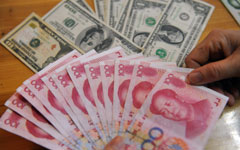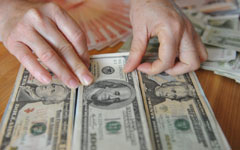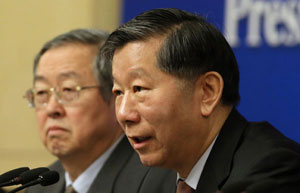Zhong Wenquan, vice president of Moody's, said that SOEs, particularly banks, made up the majority of the bond issuers.
"It is noticeable that single bond issuance has reached billions of yuan," Zhong said.
 |
 |
Hong Hao, the chief strategist of BOCOM International Holdings Co Ltd, forecast that the dim sum bond market will basically stay put, as it is generally believed that the latest round of yuan depreciation is policy-guided.
"The offshore yuan bond market still boasts sufficient
Hong was echoed by Bai Ming, a researcher with the Chinese Academy of International Trade and Economic Cooperation. "It is good to see investors no longer blindly speculating on a stronger yuan. Moreover, expectations for yuan internationalization remain strong, which will provide a solid foundation for the long-term development of the offshore yuan bond market," Bai said. HSBC has projected a warning line for dim sum bond investors if the yuan weakens to 6.2 against the US dollar. When Chinese companies raise cash overseas, dollar bonds appear to be a strong alternative to dim sum bonds. Latest figures show that Chinese companies have issued dollar bonds worth as much as 5.3 billion US dollars since April, including an issuance of 3 billion US dollars made by Sinopec, China's second-biggest oil producer. Liu Dongliang, senior financial analyst with China Merchants Bank, said that the dollar now boasts greater liquidity, a longer term of bond issuance and lower bond rates, making it more appealing to issuers. Fear of lukewarm market reactions over dim sum bonds has led two medium-sized Chinese companies to give up their issuance plans and turn to dollar bonds, according to official reports. Economic analyst Zhou Hongli with DBS China said that if the yuan continues to weaken in the next quarters, companies will become reluctant to issue dim sum bonds. Liu said that issuers with solid credibility and financial conditions would continue to be favored in dim sum bonds. In the long term, business development needs and financing costs should outweigh exchange rates as the key factors affecting the bond issuance decisions of companies, said Liu.
|
 |
|
